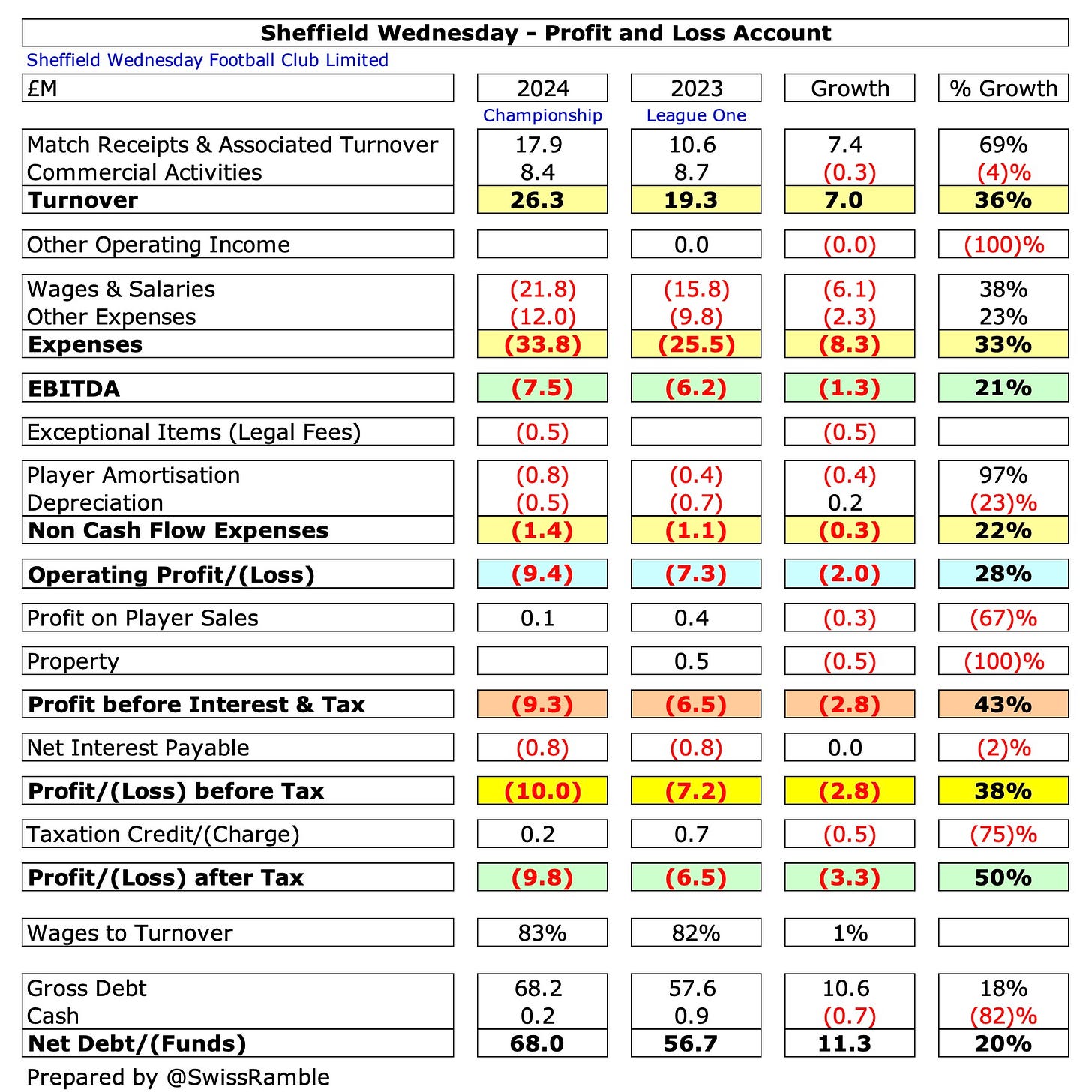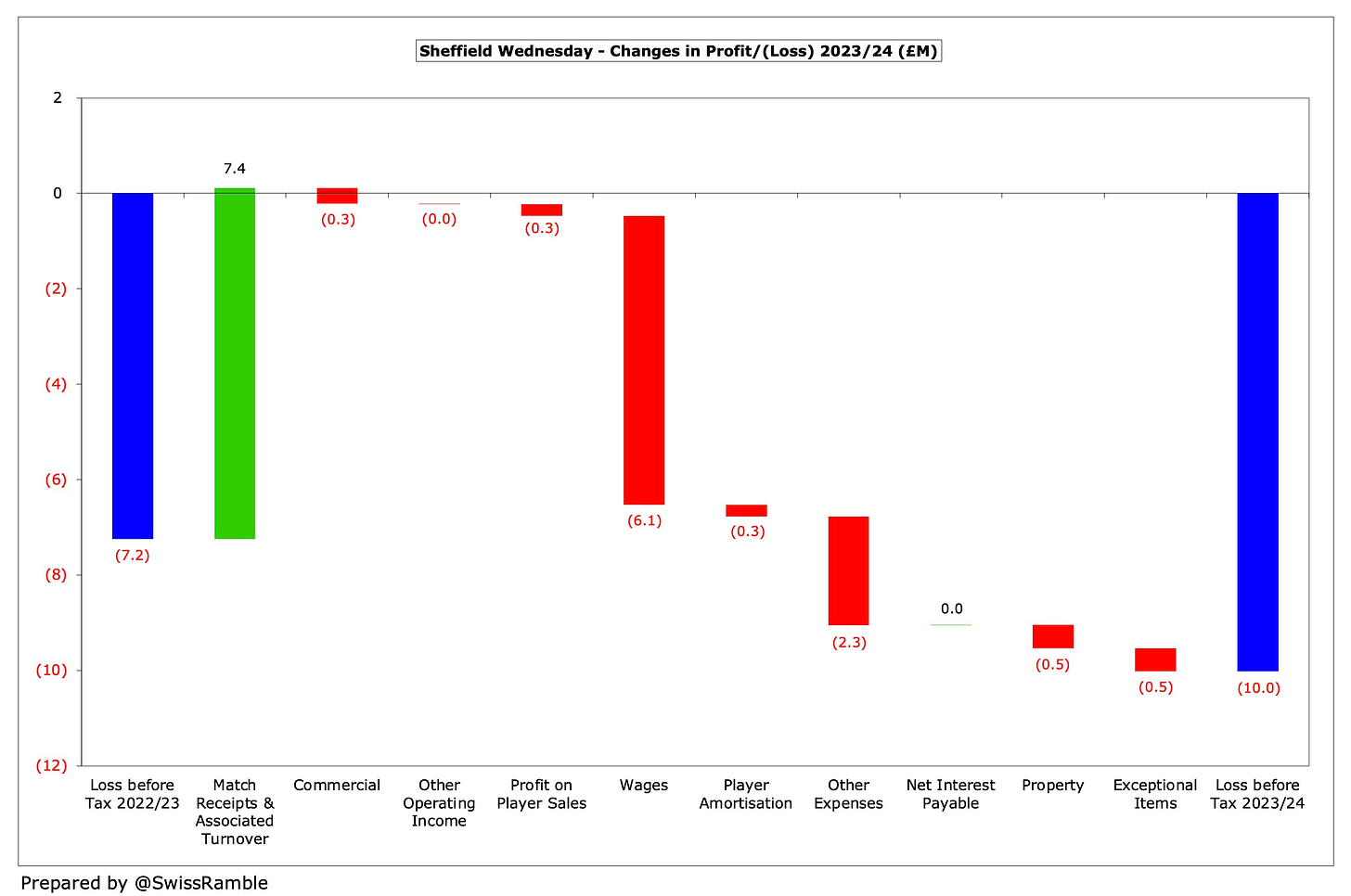Sheffield Wednesday published their 2023/24 accounts much earlier than previous seasons, in fact just a few days after Christmas, so we have an earlier than usual view of the club’s finances.
These accounts covered Wednesday’s first season back in the Championship after two seasons in League One, having been promoted via the play-offs, when they scored the winner in the last minute of extra time.
However, they very nearly suffered an immediate return to England’s third tier, only securing their survival on the last day of the season, ultimately finishing in 20th place. The “great escape” was largely thanks to Danny Röhl, whose appointment in October 2023 led to a major upturn in the club’s fortunes.
Incredibly, Röhl was the third manager after Wednesday’s promotion, as Darren Moore left the club “by mutual consent” in June 2023, just a few weeks after the Wembley triumph. The big man was then replaced by former Watford manager Xisco, but the Spaniard only lasted three months in the hot seat.
The team’s performances were much better under the young German coach, who was justifiably proud of avoiding relegation, “We wrote history. Never before has a team taken only six points from their first 17 matches and stayed in the league.”
The Owner
Despite this achievement, there’s “trouble at t’mill” these days, as the relationship between the club’s owner Dejphon Chansiri and the supporters looks to have irretrievably broken down.
Last year, the Thai businessman let rip, “I am the one who needs to pay around £2m on average every month. Some fans need to have more respect for owners of clubs and not be so selfish, thinking of their own benefit without doing anything good to the club.”
Unsurprisingly, there have been many protests against the ownership, including a banner at Hillsborough stating, “Dejphon Chansiri. Not fit or proper. Sell the club.”
It’s fair to say that matters did not improve at a recent fans’ forum, when club officials including Chansiri were involved in various heated exchanges with supporters.
Indeed, last season Chansiri had announced that he would not invest any more money into the club following protests against the owner, saying, “This is not acceptable and as a result I am not willing to inject more money while I am being treated unfairly by those fans.”
In the end, he did actually write another cheque to cover the club’s losses, but there has been precious little investment in the squad recently. Indeed, in December Röhl complained that there had been no discussions with the owner about potential targets in the current window.
The club’s response was fairly puerile, “If the manager requires reinforcements during the January transfer window, the onus is on him to source and provide a list of targets to present to the chairman, as has always been the case.”
League Position
In fairness to Chansiri, he very nearly took the club back to the Premier League, as Wednesday have twice reached the Championship play-offs during his tenure, albeit a fair while ago in 2015/16 and 2016/17.
He spent big on the squad during this period, but ultimately the gamble failed and led to the club having difficulties in complying with the EFL’s Profitability and Sustainability Rules.
Since those heady days, Wednesday have struggled, steadily falling down the Championship table, before being relegated to England’s third tier in 2020/21, bouncing back two seasons later.
So let’s take a look at Wednesday’s financial position in the Championship to see how they stack up against their rivals and whether they can realistically compete in England’s second tier.
Profit/(Loss) 2023/24
In 2023/24 Wednesday’s pre-tax loss widened from £7.2m to £10.0m, despite revenue increasing £7.0m (36%) from £19.3m to a club record £26.3m, following promotion from League One to the Championship.
This was offset by operating expenses rising £8.5m (32%) from £26.7m to £35.2m, in order to compete in the higher division, while the club also booked £0.5m exceptional legal fees.
Profit from player sales was down from £0.4m to only £0.1m, while there was no repeat of the previous season’s £0.5m gain from a property sale.
The loss after tax was slightly smaller at £9.8m, thanks to a £0.2m tax credit.
The revenue increase was driven by match receipts & associated turnover, which rose £7.3m (69%) from £10.6m to £17.9m, mainly due to the higher TV money in the Championship, but commercial activities fell £0.3m (4%) from £8.7m to £8.4m.
Keep reading with a 7-day free trial
Subscribe to The Swiss Ramble to keep reading this post and get 7 days of free access to the full post archives.







